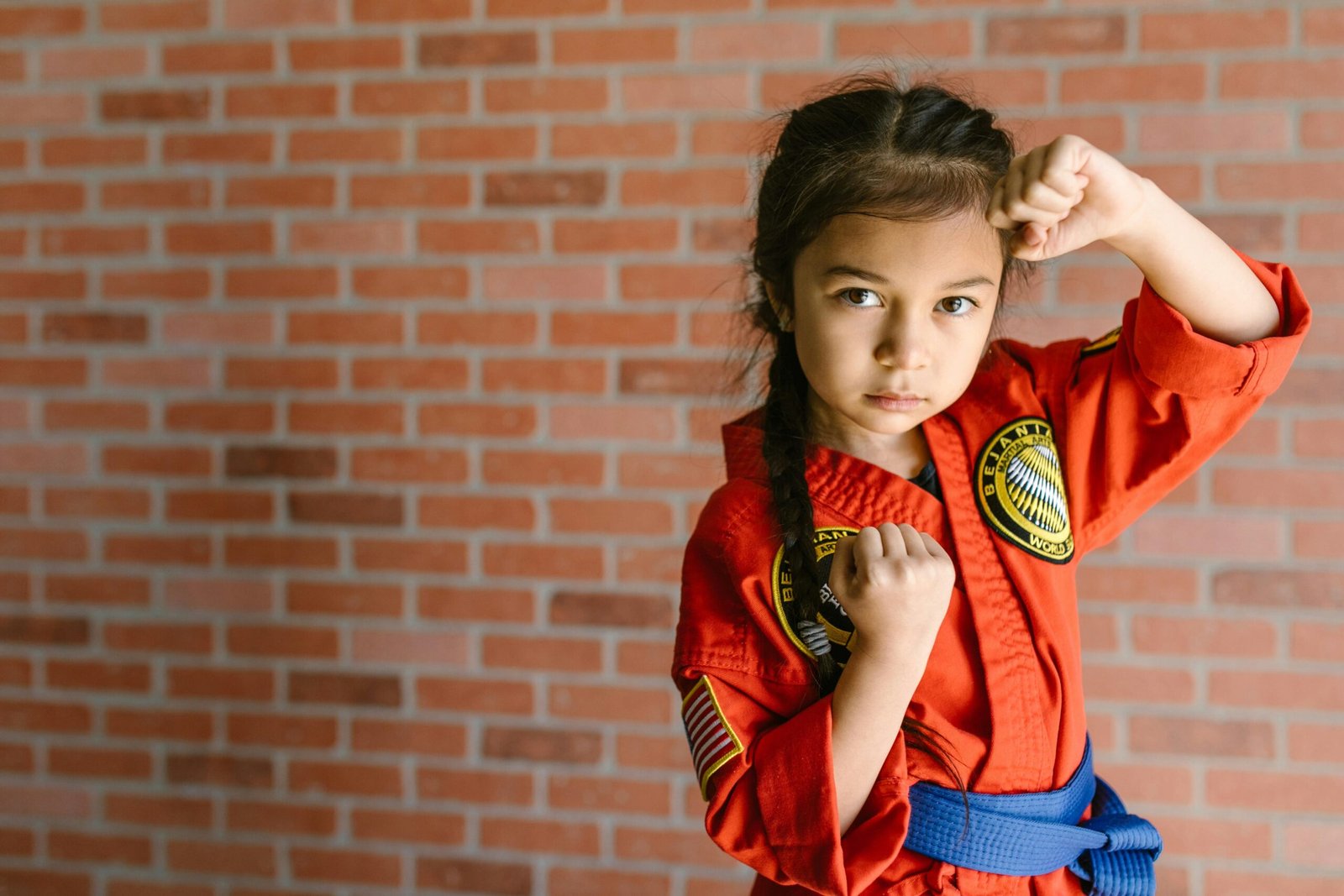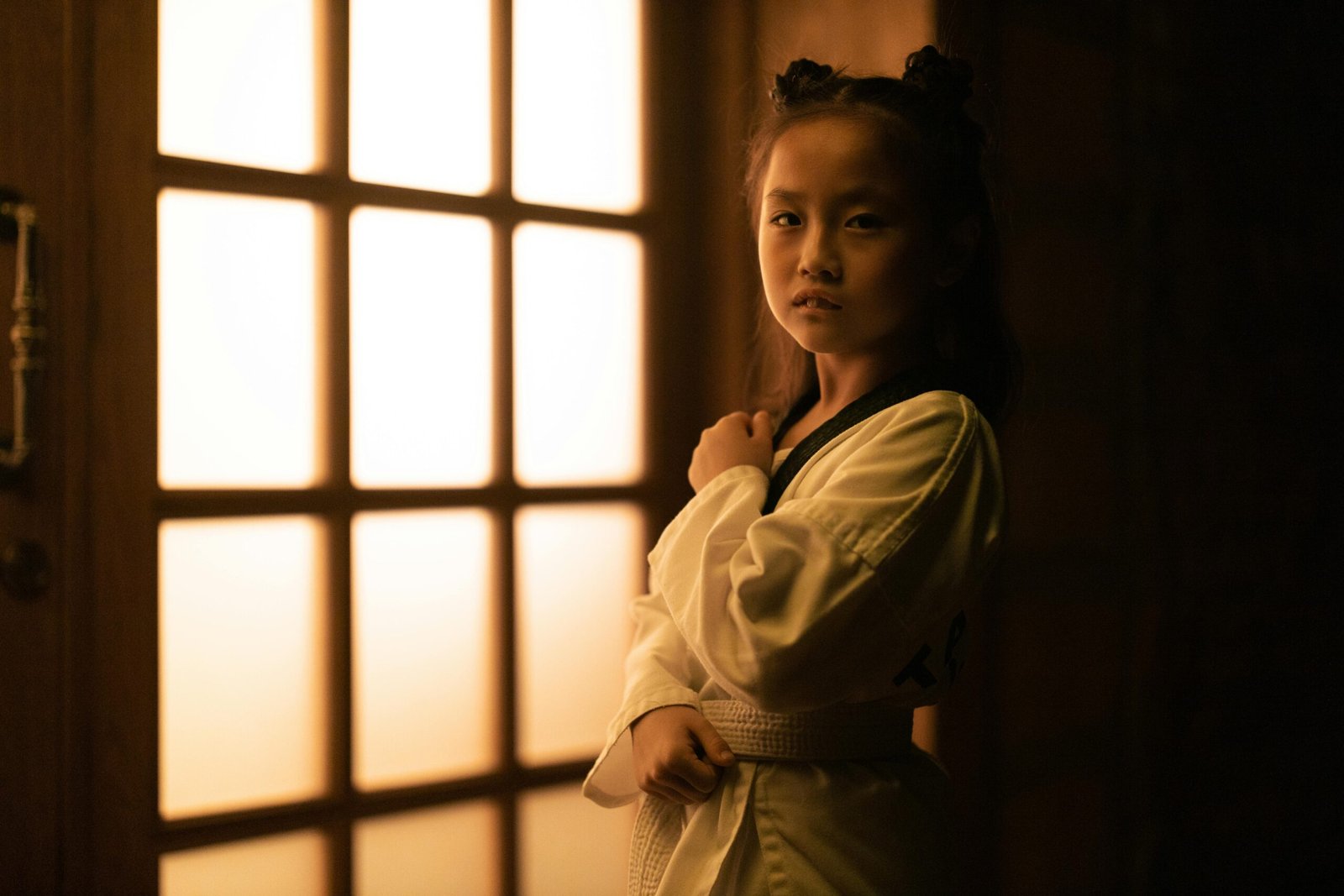You’ve seen the adorable videos online: toddlers in tiny gis, earnestly attempting karate kicks and practicing their “hi-yah” with all the confidence in the world. But as a parent, you might find yourself wondering, Is karate for toddlers really advisable? Let’s break it down and explore whether your energetic little one should take a swing—or kick—at this martial art.
Karate for toddlers has gained popularity over the years, and it’s easy to see why. This ancient martial art promises discipline, physical activity, and plenty of fun for the youngest members of the family. But is it really the right fit for a child who’s still mastering the art of tying their shoes? Let’s dive into what you should know before signing up for a class.
What Is Karate for Toddlers All About?

First things first: when we talk about karate for toddlers, we’re not expecting three-year-olds to become black belts overnight or master the moves of Bruce Lee. Toddler karate classes are typically tailored to their age and developmental stage. They’re more about introducing kids to basic movements, encouraging focus, and having a good time.
Classes usually incorporate simple, playful exercises like learning how to punch and kick (safely, of course) or copying animal-inspired movements. Think of it as a fun and structured way to channel all that toddler energy. Some classes even mix in games and obstacle courses to keep things engaging.
So, why karate for toddlers? Well, here are a few benefits to keep in mind.
The Benefits of Karate for Toddlers
Karate offers more than just cute photo ops and entertaining family stories. It can play an important role in your toddler’s physical, emotional, and social development. Let’s take a closer look:
- Building Confidence: There’s something magical about seeing your toddler master a move and beam with pride. Karate for toddlers can boost self-esteem as they learn new skills and accomplish small goals, like earning their first stripe or belt.
- Developing Coordination: Toddlers are still figuring out how to move their bodies with purpose. Karate helps them improve coordination and balance through repetitive movements, which also enhances motor skills.
- Learning Discipline: Patience and discipline might sound like lofty concepts for a toddler, but karate introduces these ideas in a way they can grasp. Following instructions and waiting their turn become valuable lessons.
- Encouraging Physical Fitness: With all the running, jumping, and kicking, karate for toddlers is a great way to ensure your little one gets the physical activity they need. Plus, it sets the stage for a lifelong love of movement and exercise.
- Fostering Social Skills: Group classes allow toddlers to interact with their peers, practice sharing, and take turns—all in a positive, structured environment.
- Releasing Energy: Let’s be honest, toddlers are bundles of energy. Karate gives them a constructive outlet to burn it off and leave class feeling happy and fulfilled (and maybe a little more tired at bedtime!).
Challenges of Karate for Toddlers
While there’s a lot to love about karate for toddlers, it’s not without its challenges. Here are a few things to consider before signing up:
- Short Attention Spans: Toddlers are notorious for their inability to focus for long periods. Many karate classes for toddlers keep sessions short (think 20-30 minutes), but even then, some kids might struggle to stay engaged.
- Coordination Struggles: While karate can help improve coordination, toddlers are naturally clumsy—it’s part of their development. Expect some wobbly kicks and missed punches, and remember that perfection isn’t the goal at this stage.
- Following Directions: Let’s face it, not all toddlers are great listeners. A structured karate class might be overwhelming for a child who’s still learning how to follow instructions.
- Finding the Right Class: Not all karate classes are created equal, especially when it comes to teaching toddlers. You’ll want to find an instructor who’s patient, experienced with young children, and knows how to keep things fun.
Is Karate for Toddlers Safe?
This is a common concern for parents, and rightfully so. Rest assured, reputable karate programs for toddlers prioritize safety above all else. Classes focus on age-appropriate movements and avoid full-contact sparring. Instead, toddlers practice techniques in a way that minimizes the risk of injury.
Additionally, most programs emphasize respect and self-control, teaching kids that karate skills are not meant to be used aggressively outside of class. Of course, it’s always a good idea to observe a class and talk to the instructor to ensure you’re comfortable with their approach.
Choosing the Right Karate Class for Toddlers
If you’re sold on the idea of karate for toddlers, the next step is finding the perfect class. Here are a few tips to guide your search:
- Look for classes specifically designed for toddlers. These programs will be shorter and more playful compared to classes for older kids.
- Visit the class beforehand. Observe how the instructor interacts with the children and whether the environment feels welcoming and safe.
- Read reviews or ask other parents for recommendations. Word of mouth can be incredibly helpful when choosing a program.
- Start with a trial class. Many karate schools offer free or low-cost trial sessions to help you and your toddler get a feel for the program.
How to Prepare Your Toddler for Karate

So you’ve found a great class, and now you’re ready to dive in. But how do you set your little one up for success? Here are a few tips:
- Talk It Up: Get your toddler excited about karate by talking about it in a positive, enthusiastic way. Show them videos or books about kids practicing martial arts.
- Set Realistic Expectations: Let your child know it’s okay to make mistakes and that the goal is to have fun and learn something new.
- Invest in the Right Gear: Check with the instructor to see what’s required. Many programs provide a gi (karate uniform), but you might also need to purchase one.
- Stay Patient: Remember, your toddler is still learning how to navigate the world. Celebrate small victories and keep the experience lighthearted.
When Karate for Toddlers Might Not Be the Right Fit
While karate has plenty of benefits, it’s not for every toddler—and that’s okay! Some kids might prefer other activities, like dance, swimming, or art classes. If your child doesn’t seem interested or struggles to enjoy the experience, don’t force it. The goal is to find something that brings them joy and helps them grow.
Is Karate for Toddlers Advisable?
So, is karate for toddlers advisable? Absolutely—but with a few caveats. It’s a fantastic way to build confidence, improve motor skills, and teach valuable life lessons, all while having a ton of fun. However, it’s important to choose the right program and ensure your toddler is ready for the structure of a class.
At the end of the day, every child is different. If your little one shows an interest in martial arts, karate could be a great way to nurture their curiosity and set them on a path of discovery and growth. Just remember to keep it playful, age-appropriate, and pressure-free.
A Fun and Energetic Beginning
Karate for toddlers is about more than learning kicks and punches; it’s about building confidence, fostering discipline, and letting your child explore their abilities in a safe and supportive environment. Whether your toddler becomes the next karate kid or simply enjoys a few fun-filled classes, the journey is what matters most.
So, why not give it a try? Your toddler might just surprise you with their enthusiasm, determination, and adorable “hi-yahs.”
Frequently Asked Questions: Karate For Toddlers: Is It Advisable
1. Isn’t karate too intense for toddlers?
It’s a common concern, but karate for toddlers isn’t about punches, kicks, or anything overly serious. Picture a playful, structured class where kids learn balance, coordination, and how to follow directions. It’s more about fun movements, mimicking basic stances, and listening to instructions. The intensity comes in small doses, like focusing on one simple move at a time or learning how to stand still for a few seconds. These little challenges build confidence. Plus, the instructors understand that toddlers have attention spans that rival goldfish, so they tailor the activities to keep them laughing and engaged.
2. Won’t it make toddlers aggressive?
Not at all. In fact, karate teaches respect and self-control as core principles. The moment toddlers step into a karate class, they’re introduced to bowing, waiting their turn, and understanding boundaries. It’s less about fighting and more about fostering discipline in a way that feels like a game. They’re not taught to hit others but rather how to move with purpose and how to respond calmly in situations. If anything, toddlers often learn to express their energy positively and channel frustration better because of the structured environment.
3. Are toddlers even old enough to benefit from karate?
Absolutely! While they won’t be breaking boards or mastering complex techniques, toddlers benefit in so many subtle but important ways. Karate strengthens their motor skills, improves balance, and helps with overall physical coordination, which is crucial at this developmental stage. Plus, it builds confidence. Imagine a shy little one standing tall after learning to say “kiai!” (that karate shout) for the first time—it’s priceless. Beyond that, it introduces concepts like teamwork, patience, and listening, which are invaluable life lessons even at this young age.
4. Will toddlers really stay focused in a karate class?
Let’s be honest: toddlers have energy that could rival a rocket ship, and focus isn’t their strong suit. But karate classes for this age group are designed with that in mind. Activities are short, interactive, and engaging to keep them moving while sneaking in lessons about concentration. The key is blending fun with structure. For example, they might “chop” imaginary dragons or hop like ninjas. These activities feel like play but actually help toddlers practice paying attention and following instructions in small, manageable bursts.
5. What happens if my toddler gets bored or loses interest?
That’s perfectly normal! Toddlers have off days or moments when they’d rather chase a butterfly than learn a stance. The beauty of karate classes is that they’re flexible and patient. Instructors are trained to keep things light and adaptable, often introducing new games or changing the pace to re-engage wandering minds. If your child isn’t feeling it one day, no pressure—it’s a long journey, and the focus is on making sure they enjoy the process. Sometimes just watching their classmates for a bit can rekindle their curiosity.
6. Does karate for toddlers teach self-defense?
Not in the way you might think. While older students might learn techniques for protecting themselves, karate for toddlers is more about laying the groundwork—learning how to stand strong, move with intention, and be aware of their surroundings. At this age, the “self-defense” they learn is more emotional: building confidence so they can say “no” loudly or seek help when needed. Think of it as the foundation for future skills, wrapped up in a package that feels like a super fun activity.
7. Is karate safe for toddlers?
Yes, karate classes for toddlers are designed to be as safe as possible. Instructors focus on non-contact movements, like practicing kicks into the air or simple blocks. The dojo (karate space) is usually padded, and safety is always a top priority. Parents are often encouraged to watch and cheer from the sidelines, which adds an extra layer of comfort. If anything, karate helps toddlers learn body awareness—how to move without tripping over their own feet! And the sense of pride they get from their mini-accomplishments? Totally worth it.
